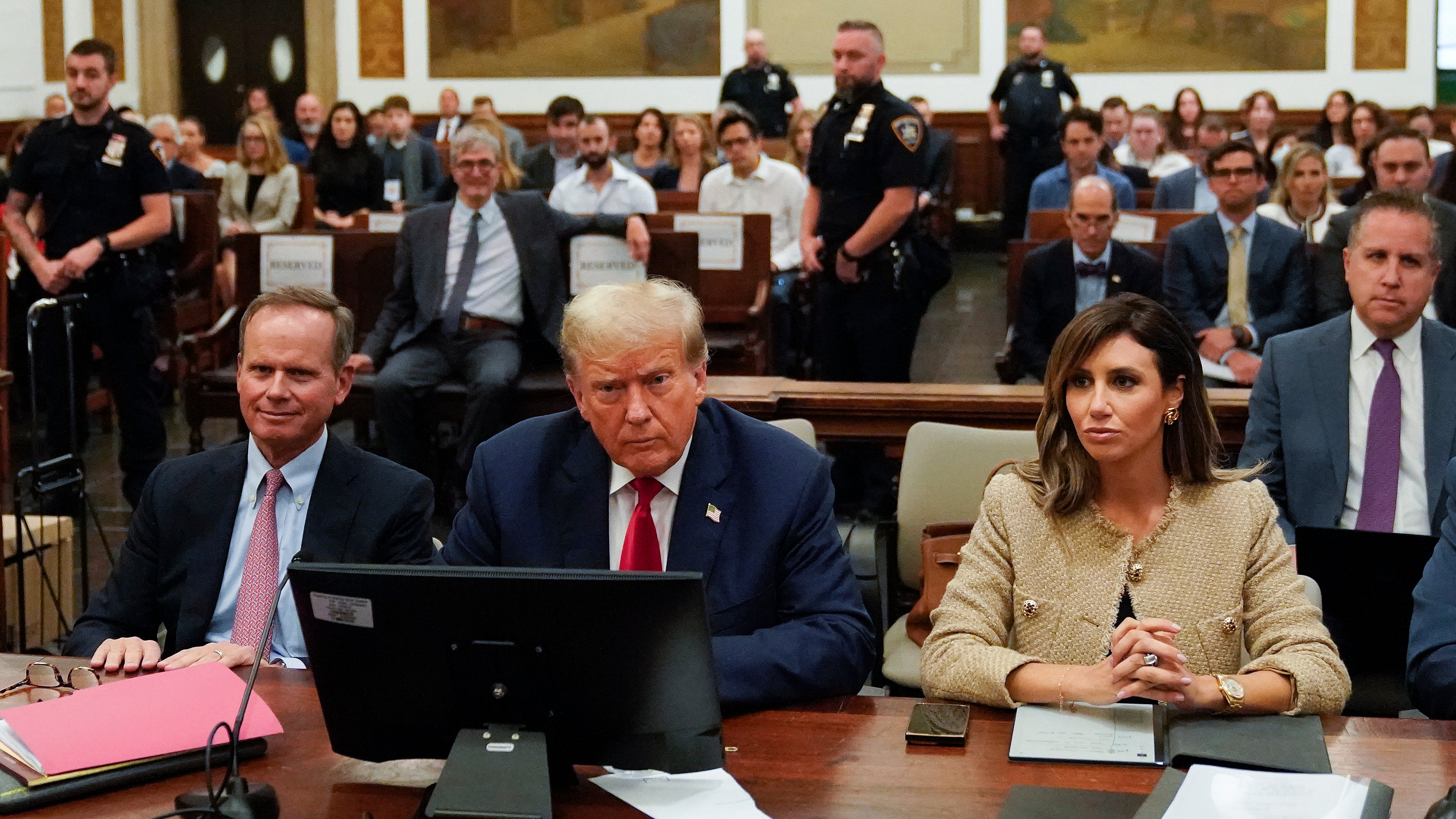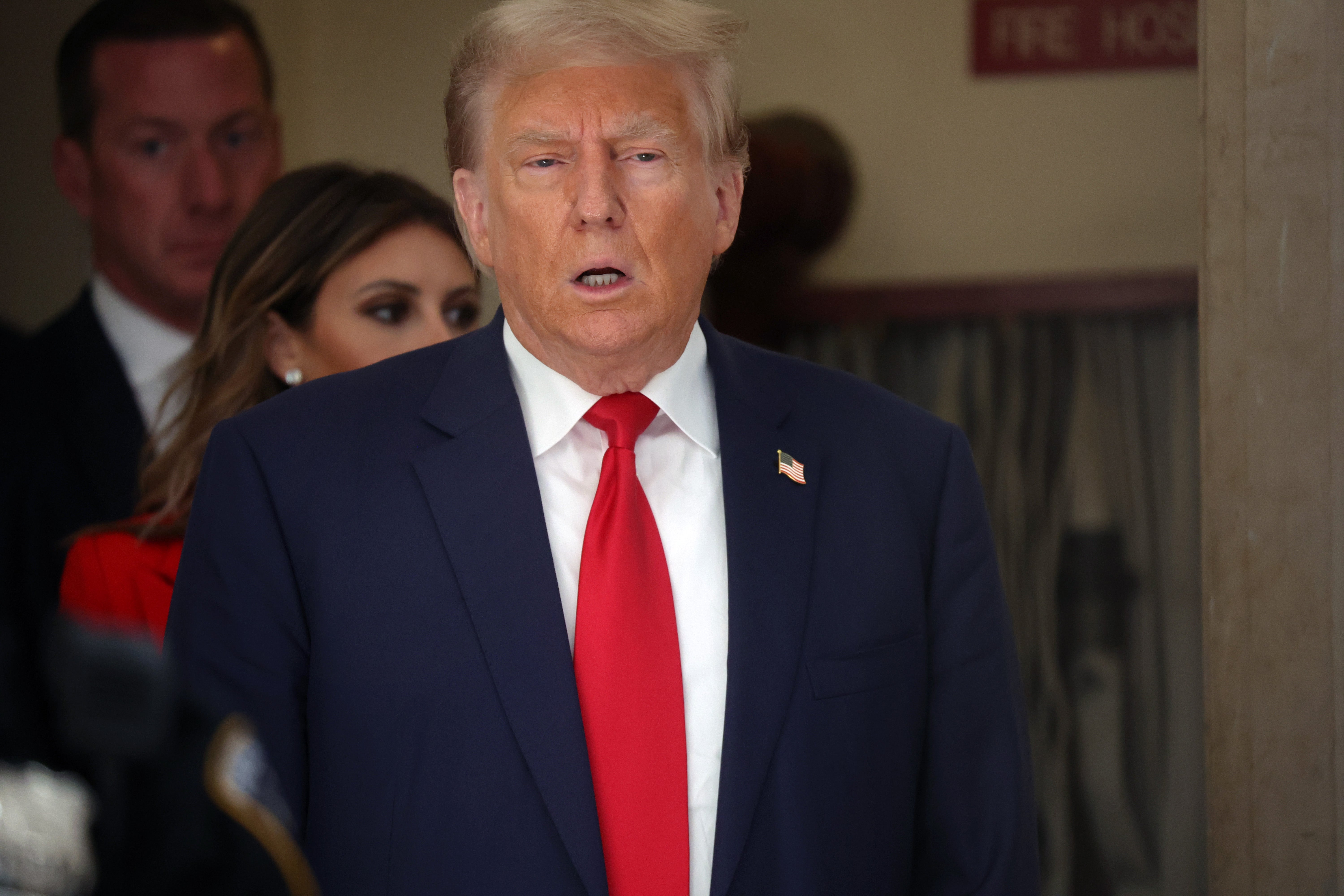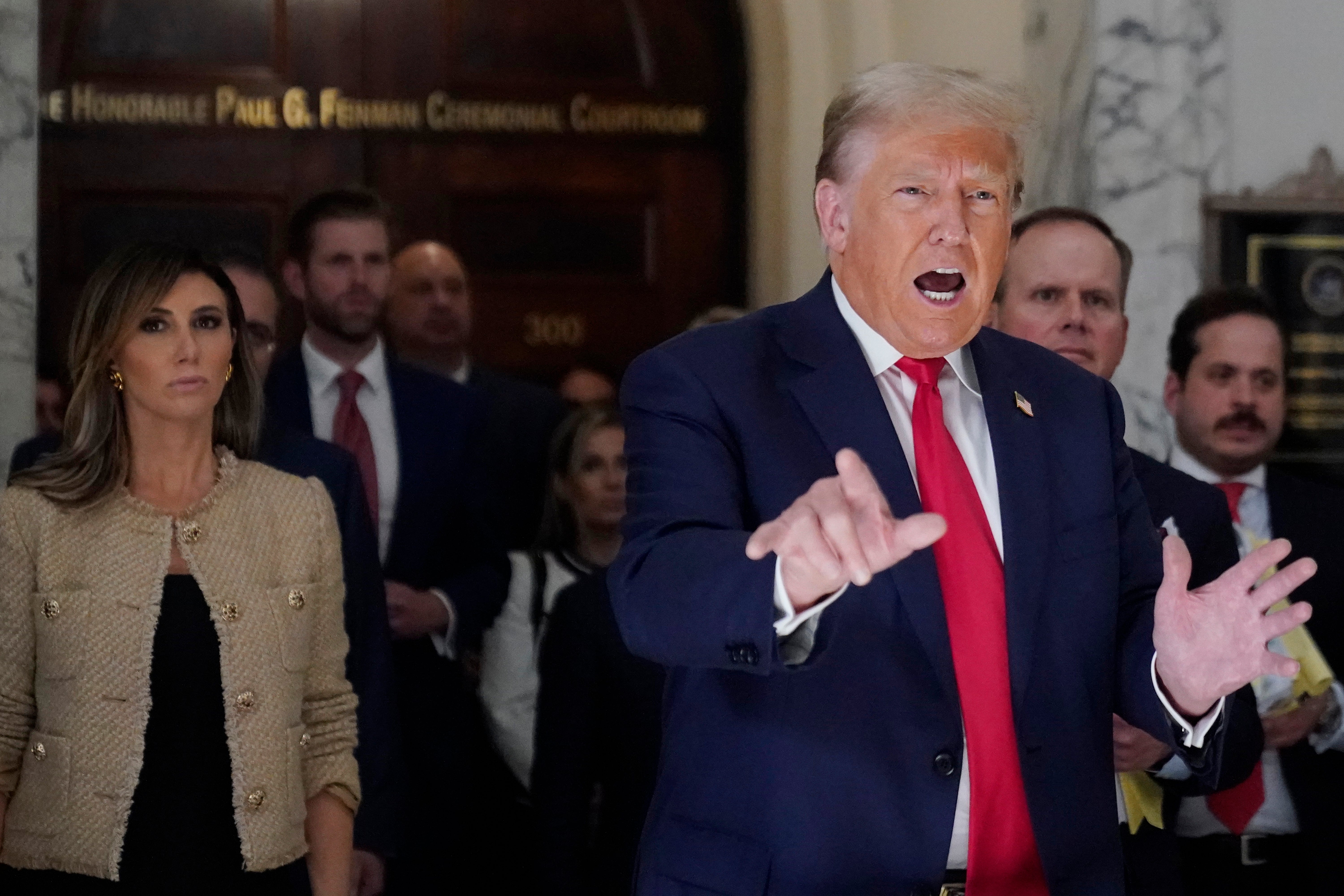What is a gag order and what does it mean for Trump?
Former president reprimanded by judge in New York civil fraud trial after attacking court clerk on Truth Social
Your support helps us to tell the story
From reproductive rights to climate change to Big Tech, The Independent is on the ground when the story is developing. Whether it's investigating the financials of Elon Musk's pro-Trump PAC or producing our latest documentary, 'The A Word', which shines a light on the American women fighting for reproductive rights, we know how important it is to parse out the facts from the messaging.
At such a critical moment in US history, we need reporters on the ground. Your donation allows us to keep sending journalists to speak to both sides of the story.
The Independent is trusted by Americans across the entire political spectrum. And unlike many other quality news outlets, we choose not to lock Americans out of our reporting and analysis with paywalls. We believe quality journalism should be available to everyone, paid for by those who can afford it.
Your support makes all the difference.Donald Trump was hit with a gag order by the judge in his civil fraud trial in New York after just a day and a half into a trial that is scheduled to run until almost Christmas.
But what is a gag order and what are the potential repercussions for Mr Trump in this trial and in the myriad of legal proceedings he faces in the coming months?
What happened?
While he has been quiet in the courtroom, he has been extremely vocal in his criticism of the case itself, the judge and the prosecutors, when talking to the media in the halls of New York’s Superior Court in Lower Manhattan.
In the months leading up to the trial, he has also attacked New York Attorney General Letitia James on multiple occasions on his social media platform Truth Social, similarly turning his attention to Judge Arthur Engoron in recent days — even as he entered court on day one.
Both Mr Engoron and Ms James have brushed off the insults and barbs levelled against them by the defendant, whose history of wild slurs against those who oppose him in any way is well known.
However, a line was crossed on Tuesday (3 October).
In one of his impromptu press conferences just outside the courtroom, and in statements through his campaign and on social media, the former president didn’t just insult Judge Engoron but also spread false claims about the chief clerk seated next to him.
He called the judge a “disgrace”, baselessly accusing him of corruption, and then falsely accused court clerk Alison Greenfield of being Senate Majority Leader Chuck Schumer’s “girlfriend” and posted a link to her Instagram account. He claimed that she is “running the case against” him.
Ms Greenfield has been seated to the judge’s right throughout the trial, directly in front of Mr Trump and his legal team.
“This trial is a rigged trial,” the former president told the press in the hallway outside the courtroom during a break on Tuesday. “You saw what was just put out about [Chuck] Schumer and the principal clerk – that is disgraceful.”

How did the judge react?
That appeared to be the tipping point, and following a lunch recess, Judge Engoron – known for his bone-dry sense of humour – returned to the bench to deliver a stone-cold warning against Mr Trump, without even naming him.
Judge Engoron said that “one of the defendants posted from a social media account a disparaging, untrue and personally identifying post about a member of my staff” – a post that that the judge said he ordered to be deleted.
But it “was also emailed out to millions of other recipients,” he added.
“Personal attacks on members of my court staff are unacceptable, inappropriate and I will not tolerate them under any circumstances,” Judge Engoron said. He added that he warned counsel one day earlier but his warning “was disregarded.”
“Consider this statement a gag order from posting, emailing or speaking publicly about any members of my staff,” he said.
He warned that Mr Trump could face “serious sanctions” if he further violates the judge’s order.

What is a gag order in practice?
Gag orders are not uncommon in criminal cases, and most commonly they are put in place to ensure that the defendant has a fair trial and that the jury pool is not influenced prior to the beginning of proceedings.
A gag order restricts the defendant, attorneys and any other individuals under the order from speaking publicly about the case outside of court documents and on-the-record proceedings.
They can also be tailored to specific circumstances — what makes the current case against the former president a little different is that it is a civil matter, there is no jury, and the case is already underway.
Judge Engoron also specified that the order forbids those involved in the case from “posting, emailing or speaking publicly about any members of my staff” which leaves the door open for Mr Trump to continue to speak about the case publicly — though he would be wise to rein in his comments.
The judge also warned that Mr Trump could face “serious sanctions” if he further violates the judge’s order.
It is unclear what those sanctions might be. The first option is financial, and the former president could be fined heavily for any further infractions.
A more severe possibility would be some form of jail time or detention.

What does this gag order mean for Trump’s other trials?
This is where things potentially get more interesting, as Mr Trump has served up an example of why a gag order is necessary, given not just a history of making such statements, but an actual contemporaneous example of such a statement within a courtroom setting at trial.
In his other New York case — the criminal probe into hush money payments to porn star Stormy Daniels — the question of a gag order was also raised.
Some legal experts suggested in April that a gag order could be necessary given Mr Trump’s violent rhetoric and constant posting about the case already.
In both the days and weeks leading up to and in the aftermath of the 30 March grand jury vote to indict him on criminal charges, Mr Trump has lashed out at almost everyone involved in the case.
In his federal cases, US Department of Justice special counsel Jack Smith has requested a partial gag order to restrict his statements surrounding a federal case alleging Mr Trump’s criminal attempts to subvert the 2020 presidential election.
Mr Trump knows that “when he publicly attacks individuals and institutions, he inspires others to perpetrate threats and harassment against his targets,” according to the request from the special counsel.
He continues those attacks “precisely because he knows that in doing so, he is able to roil the public and marshal and prompt his supporters,” the filing states.
Further, in Georgia, the office of Fulton County District Attorney Fani Willis has asked a judge to restrict the release of any information about jurors involved with the sprawling criminal case against Mr Trump and 18 other defendants accused of conspiring to overturn 2020 presidential election results in Georgia.
This came about after the former president’s supporters published grand jurors’ names, social media profiles, addresses and phone numbers as part of an apparent online harassment campaign fuelled by right-wing outrage. Under Georgia law, the names of the grand jurors were included in the indictment.
Gag orders in these criminal cases would be much more comprehensive and the immediate impact of that would be an end to much of the fundraising efforts of the Trump 2024 campaign — at least anything specifically referencing the case.





Join our commenting forum
Join thought-provoking conversations, follow other Independent readers and see their replies
Comments